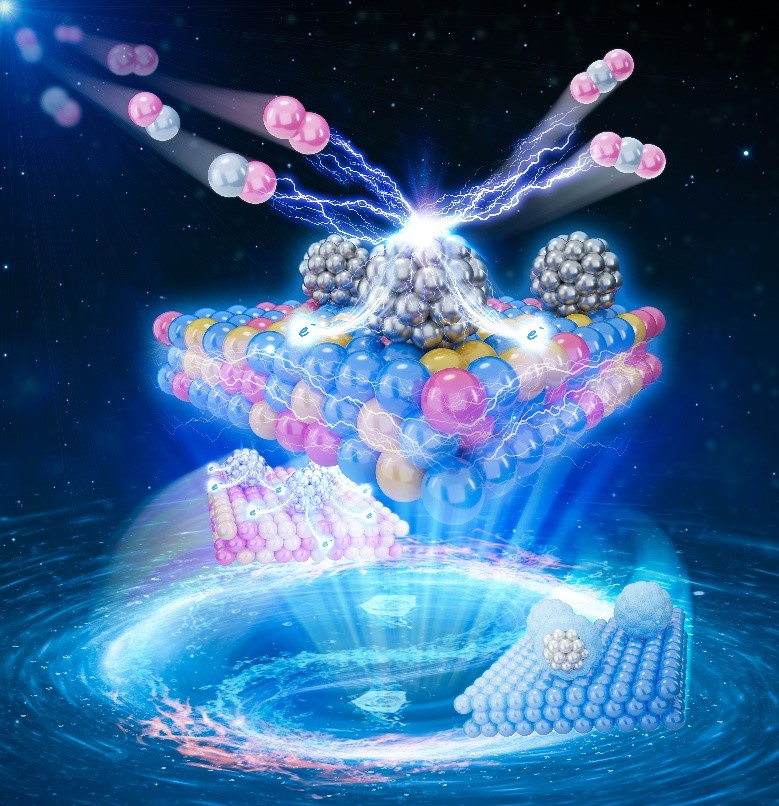Recently, our Center in collaboration with Prof. Botao Qiao to construct an efficient and stable supported Pt cluster catalyst by introducing FeOx into hydroxyapatite (HAP) support to regulate the strong metal-support interaction (SMSI). It opens up a new potential way for the development of supported noble metal catalysts with excellent activity and stability under harsh reaction conditions.

The catalytic performance of supported metal catalysts is closely related to their structure. While Pt-based catalysts are widely used in many catalytic reactions because of their exceptional intrinsic activity, they tend to deactivate in high temperature reactions, requiring a tedious and expensive regeneration process. The SMSI is a promising strategy to improve the stability of supported metal nanoparticles, but often at the price of the activity due to either the coverage of the active sites by support overlay and/or the too-strong metal-support bonding. Therefore, accurate regulation of SMSI to achieve catalyst design with both activity and stability is one of the research focuses in the field of heterogeneous catalysis.
Previous studies have proved that two new types of SMSIs can effectively stabilize platinum group metals (PGMs), namely, strong covalent metal−support interaction (CMSI) between PGM single atoms and iron oxides (FeOx) and oxidative metal−support interaction (OMSI) between PGM NPs and hydroxyapatite. However, the complete encapsulation of active sites and too-strong covalent bonds between metals and supports inevitably lead to a deterioration of the catalyst activity. Based on this, in this study, FeOx was introduced into hydroxyapatite (HAP) support to regulate SMSI. Detailed characterizations reveal that FeOx introduced into HAP weaken the electron transfer between Pt and FeOx while simultaneously inhibiting the OMSI between Pt and HAP. The moderate covalent interaction intensity and exposed Pt active sites are beneficial for improving the sinter resistance of the catalyst, while maintaining good activity. The Pt/5FH-600 catalyst not only achieve complete conversion of CO at a temperature below 150 °C but also show satisfying stability during long-term (100 h) reaction testing. This work provides an effective method for the development and design of high efficiency anti-sintering catalyst by regulating SMSI.
The related research results entitled “Highly Active and Sintering-Resistant Pt Clusters Supported on FeOx-Hydroxyapatite Achieved by Tailoring Strong Metal-Support Interactions” has been published in ACS Appl. Mater. Interfaces. The first author is Yunxia Liu, a doctoral student in our Center. This research is supported by the National Natural Science Foundation of China and the International Partnership Program of the Chinese Academy of Sciences.
Relevant link: https://doi.org/10.1021/acsami.4c02521